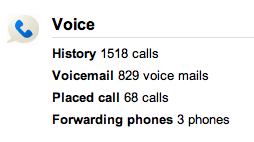What’s Really Behind The Facebook/Google Real Name Debate?
Mandating that people must use their “real names” to express themselves online is a hard position to defend. There are many scenarios where participating under a different name makes sense: For political activists, victims of harassment and other crimes, those with medical conditions or lifestyles they’d rather keep private, and people on the job market or in sensitive professions, like teaching children.
 It seems to me that the larger issue in this ongoing real names debate is not who you say you are, but the usefulness of a unified Web identity. The more we condense our online selves into a single person, the more reliable, accountable and monetizable our Web experiences can be.
It seems to me that the larger issue in this ongoing real names debate is not who you say you are, but the usefulness of a unified Web identity. The more we condense our online selves into a single person, the more reliable, accountable and monetizable our Web experiences can be.
Facebook and Google are fighting a war over which company will be the preferred personalization experience across their own and other people’s Web sites and apps. Both companies offer Web identity systems that they want us to stay logged into all day long, whether we’re reading the news, listening to music or looking at photos.
Having a unified identity isn’t necessarily a bad thing for users, because it can make the Web more customized and convenient. It can also be super creepy.
When I log into my Google Dashboard, I can learn that the last thing I bought with Google Checkout was a pair of shoes in June ’09, that I last synced my mail on my iPhone at 1:27 am last night, and that I’ve had 1,518 Google Voice calls. That is a seriously quantified self.

Facebook and Google+ may say that they require “real names,” but I’m not convinced that they’re terribly serious about it. Neither site requires users to send in their passports to create an account (though they do sometimes ask for legal verification in disputed cases). Like danah boyd, I know many Facebook users who use pseudonyms, often for obviously justifiable reasons or simply because they like more privacy.
For that matter, I’ve also become friends with a few pet dogs as well as dummy accounts created by developers, which Facebook didn’t officially support until last month.
Facebook does do some policing of its terms of use but it obviously turns a blind eye to pseudonyms much of the time. It seems to rely more on a culture of real names than strict enforcement. Users who choose to go by their commonly used names are probably more likely to have a full Facebook experience, simply because more people they know will find them and interact with them.
Even if I’m giving Google+ a pass for now, I will say Google is currently utterly terrible at understanding its users’ multiple identities. I have a Google Apps account for work and a Gmail account for personal email and am constantly bumping into access problems despite having supposedly set up a multiple account feature.
For a while I contributed to a (silly, harmless) blog under a pseudonym, and now every time I go to make a comment on a Blogger site, it’s under that name because I linked it to my Gmail address. And do I really want every video I ever watch on YouTube tied to my Google account? Not really, but if I log out of YouTube I log out of everything.
None of this inconvenience has to do with whether or not I used my genuine certified real name — it’s about Google or Facebook trying to get me to use a single account for all my activities.
Facebook’s Mark and more recently Randi Zuckerberg have famously called for the end of anonymity and denigrated inconsistent online identities. But Randi was on her way out the door and Mark later tried to recant his comments, saying he didn’t mean to make value judgments about people’s lives. Their stated positions are too uncompromising to be defensible.
As Caterina Fake writes, pseudonyms have different purposes — among them, stage names and noms de plume, false names used for protection and haters and trolls. Requiring “real names” on online services is a clumsy though often effective attempt to fend off trolls. Sites like Google+ and Facebook don’t actually need real names to do their business.
What Facebook and Google really seem to be after is condensing our accounts into one. That in itself is a scary and awkward prospect as well — but it’s not as simple as requiring a “real name.”
Passport image credit: FreeFoto.
Please see the disclosure about Facebook in my ethics statement.









